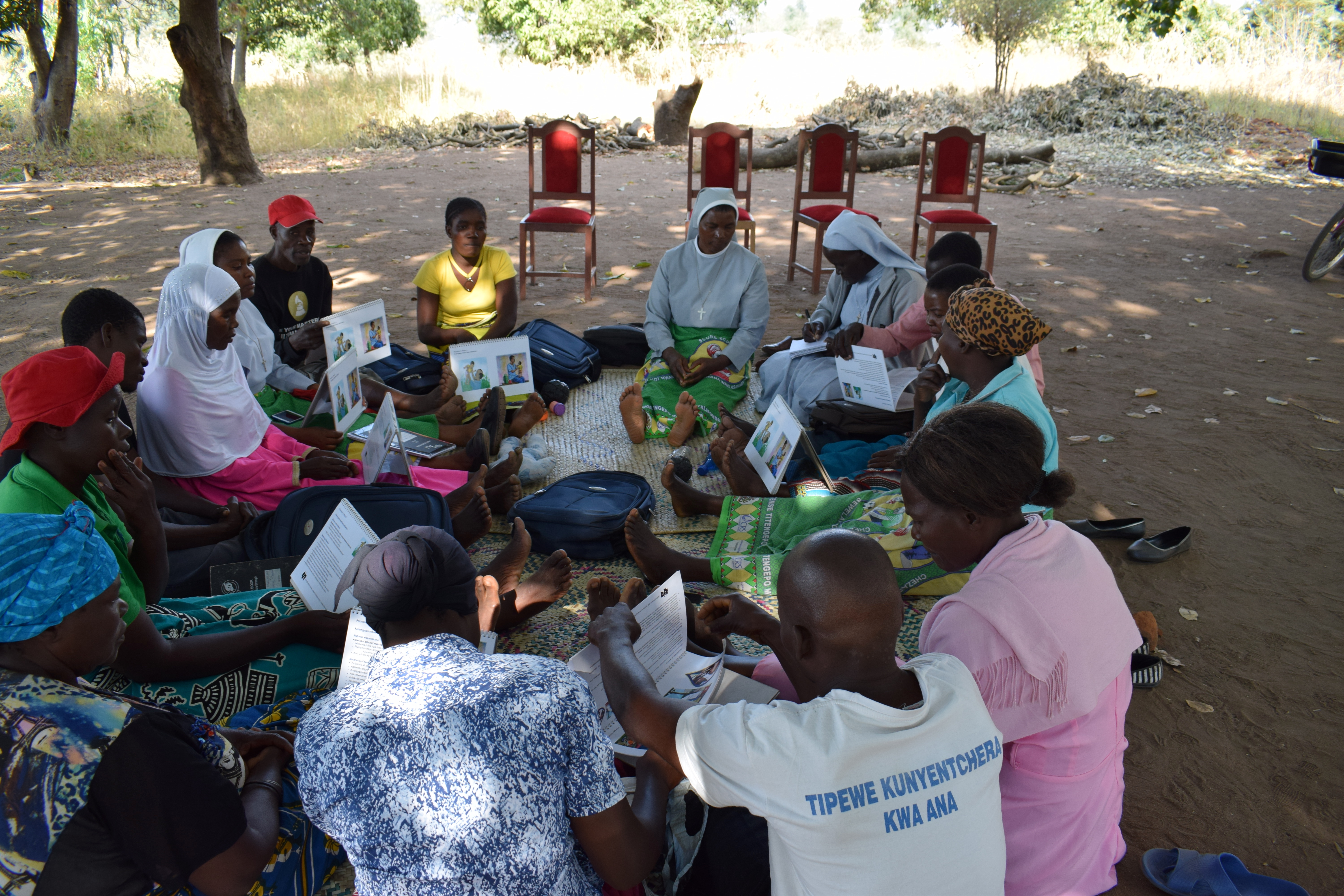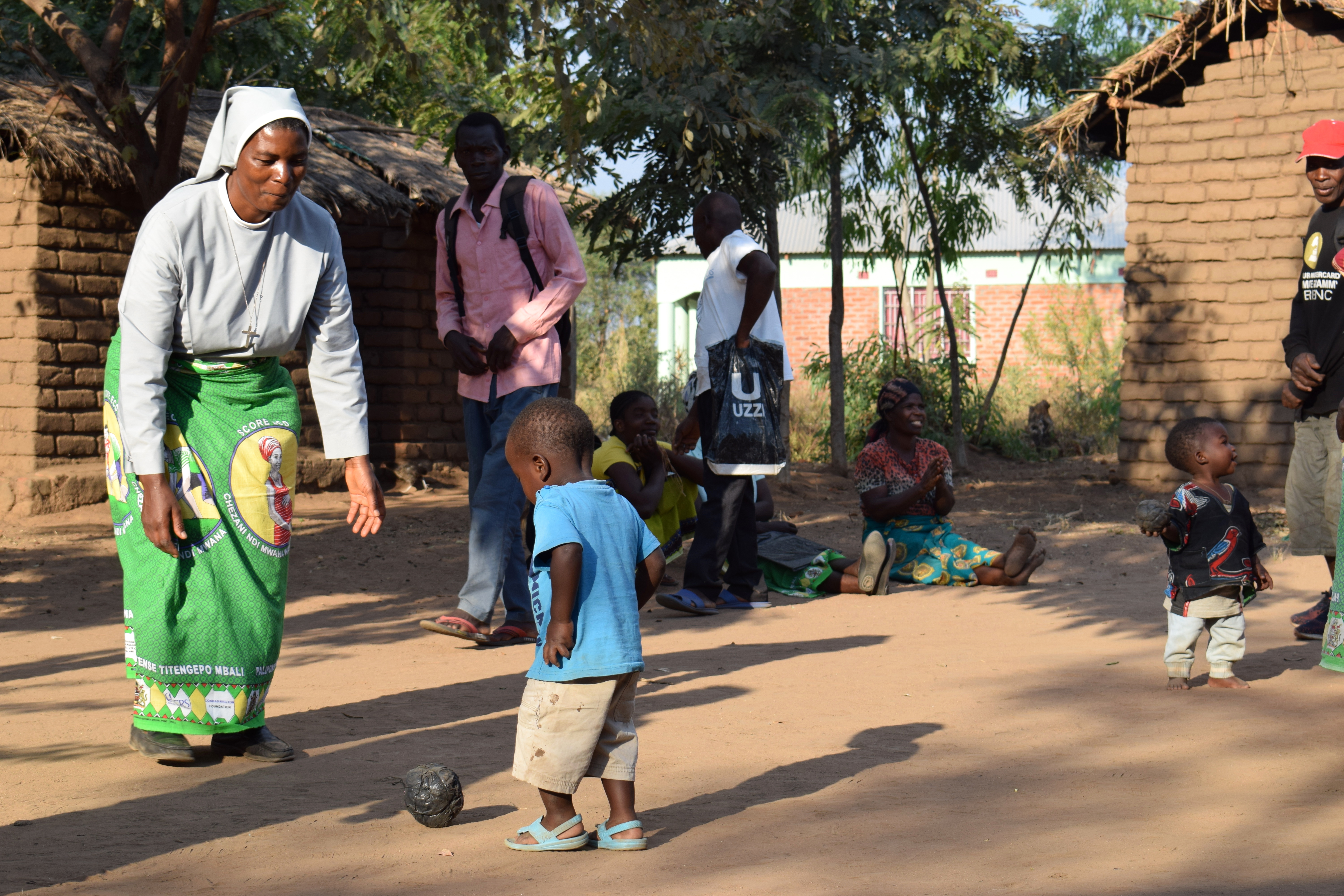MALAWI: CRS Project broaden Sisters’ horizon towards sustainability

For the Congregation of the Sacramentine Sisters at Ulongwe in Mangochi Diocese, Malawi, institutional capacity strengthening reforms proposed by Catholic Relief Services, (CRS) came as an eye opener.
The CRS coordinated Strengthening the Capacity of Women Religious in Early Childhood Development (SCORE ECD) reforms which preceded the implementation of early child development initiatives in Kenya, Malawi and Zambia sought to build the Sisters’ capacities in certain areas of management.
The project focused on building Sisters’ capacity in areas of proposal writing, human resource management and development of some key policy documents, among others.
According to Sr. Helen Matchado, members of her Congregation acquired new management skills and were able to develop some key policy documents like human resource, finance and procurement policies which have helped them to streamline their operation.
“We used to depend on our staff to inquire from among their relatives and acquaintances when recruiting workers,” Sr. Matchado went on to explain, adding that they simply employed workers without interviews.
This recruitment procedure however landed the sisters into litigation from some disgruntled staff who were dismissed for some reason or the other.
“Some disgruntled staff have taken us to the Labour Office and we have lost considerable amount of money because of that,” the nun who is also the Coordinator of her Congregation in Malawi said.
New way of doing things
Today, the staff undergo a proper recruitment process including interviews, and they are employed based on competence. Each staff member now has a file and is contracted for a period of time, at the end of which their contracts can either be renewed or nullified based on competence.
The Sisters also underwent financial management training and they now record each and every financial transaction. According to Sr. Matchado, those who have been trained have mentored other Sisters and this has created a multiplier effect in the Congregation.
“We have started a new way of doing things and there is a great improvement,” she confidently said, adding that whatever new knowledge they acquire, they practice and where necessary, they consult with CRS.
On the issue of sustainability, she said every now and then, they are trying to find ways of sustaining this project outside of the life-span of CRS sponsorship.
“Before taking on SCORE ECD, we depended on our salaries and support from the General Administration in Italy, but now we think of local income generating activities,” she said.
The Sisters have swung to action and have put the proposal writing and financial management skills they acquired to good use. They have incorporated poultry and piggery farming as a way of earning income to sustain the project with money received from a project they wrote. They rear local and hybrid chickens. With the waste from the poultry and piggery, they have started a small scale organic farm where they grow vegetables, bananas and fruits for home consumption and sale.
ECD project spreads its wings, sisters create linkages
Meanwhile, the kindergarten school that initially ran like charity has been transformed into a social enterprise. The school sought to offer value for money for which they asked the parents to pay a little more than they initially did.
The nun recalled that the immediate reaction of many of the parents was to remove their children from the school. She said the number of children dropped from 120 to 60. This, however, did not scare the Sacramentine Sisters. Instead, they integrated ECD messages into the children’s learning, which many parents came to appreciate. Today, the number of children at the kindergarten school stands at 105, up from 60 children.
Sr. Matchado narrated that for the project to penetrate the community, they had to go to the villages and meet the people in their communities.
“At first it was not easy to relate with the people in the villages,” she said. But later on, they had to go through the chiefs. They sensitized the chiefs about the benefits of the project to the community and the chiefs in return sensitized the people and encouraged them to come to the sisters.
The women were the first to come to the Sisters. The Sisters taught the women on general hygiene and how to look after their home. Most importantly, they taught the women how to prepare nutritious meals for their families using local foods through cooking demonstrations. To date, the sisters still hold cooking demonstrations twice a month.
After the first cooking demonstration, word went round because the women who participated eventually became ambassadors to the wider community.
Later, the Sisters identified some cluster leaders, Community Health Volunteers CHVs), most of whom were already working with Government or other organizations operational in the area. They trained the CHVs on ECD messages and these further helped to spread the message about the project to the people.
In total the Congregation has trained 1,036 beneficiaries in nine villages in Ulongwe District. The results of the training are so amazing. The beneficiaries are able to prepare nutritious meals for their families, make local play materials for their children with increased number of women going for antenatal and postnatal clinics.
Health units in participating communities now register more hospital births than before and this has enabled parents to receive birth registration certificates for their children. And more so, most households now have pit latrines and clean environment, with more men getting involved in taking care of children.
Networking and advocacy
 Sr. Matchado has been using Radio Maria and Luntha Television which are local Catholic broadcasting stations in the area to pass on the message about ECD. Today, the nun attends meetings at the District where she freely shares about ECD.
Sr. Matchado has been using Radio Maria and Luntha Television which are local Catholic broadcasting stations in the area to pass on the message about ECD. Today, the nun attends meetings at the District where she freely shares about ECD.
The Sacramentine Sisters have also gone on to share the information about SCORE ECD to other Religious Congregations through the Association of Women Religious Institutes in Malawi (AWRIM) and diocesan meetings. This has heightened the desire of many Congregations to participate in the project.
Even in the surrounding community, the project has had a positive impact. This has resulted into people knowing more about SCORE ECD, while others have come to see for themselves what the Sisters do at the ECD Centre at St. Gertrude Nursery School in Ulongwe. She explained that most of the children at the kindergarten were from the ECD participating homes.
As such, the Sisters’ ECD Centre has become a point of reference for officials in the Ministry of Social Welfare as well as from the Ministry of Gender, Children and Community Development. They often refer to the role the Sisters have played in promoting the welfare of child and community development.
By Sr. Grace Candiru


